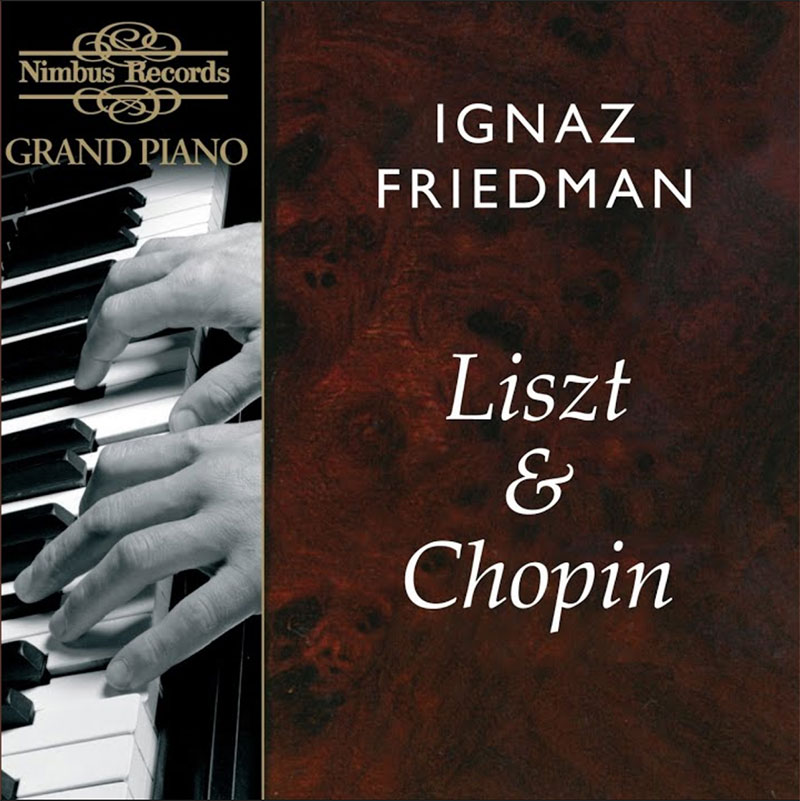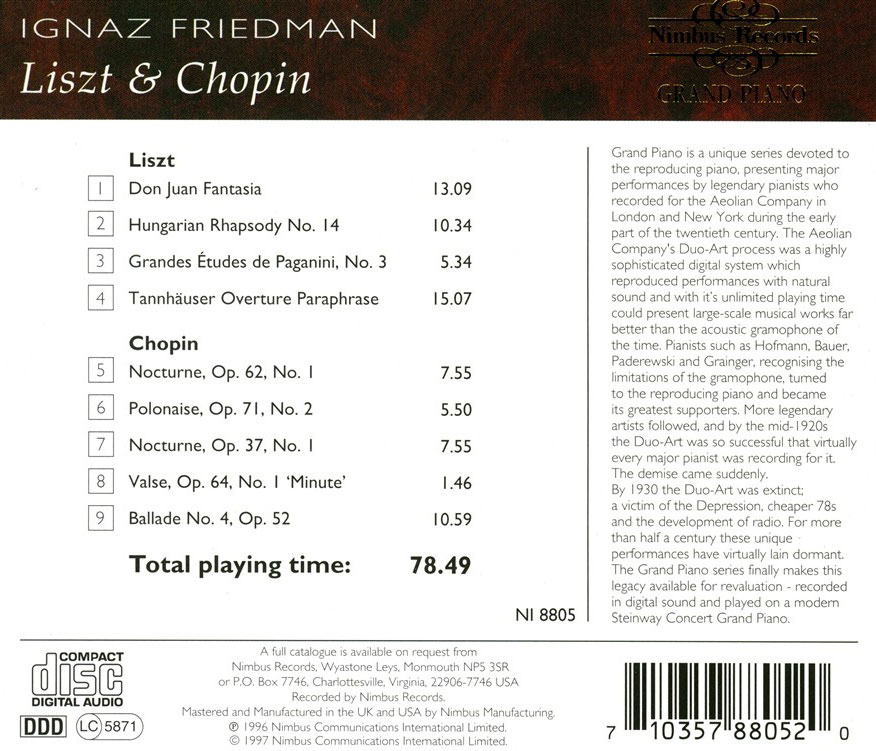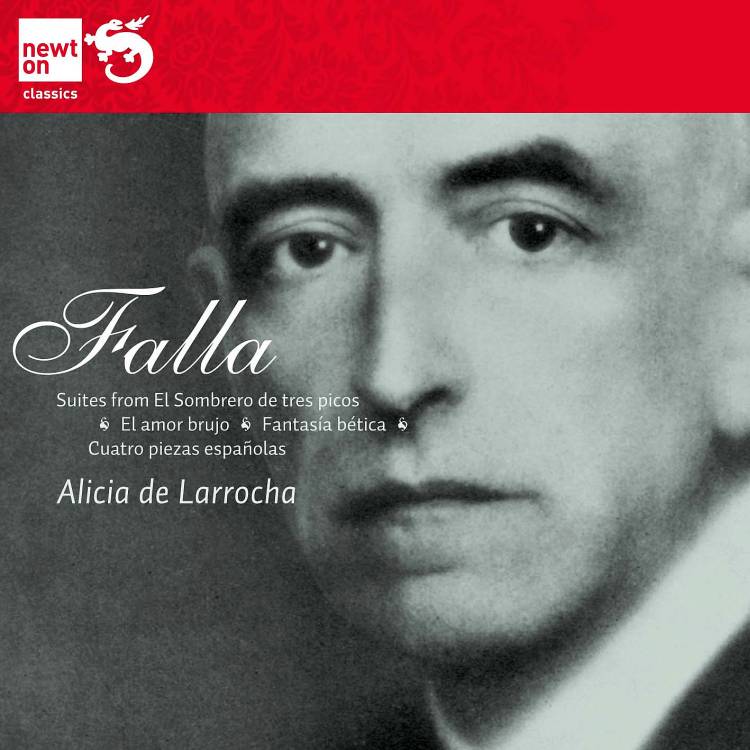Logowanie
Dziś nikt już tak genialnie nie jazzuje!
Bobby Hutcherson, Joe Sample
San Francisco
SHM-CD/SACD - NOWY FORMAT - DŻWIĘK TAK CZYSTY, JAK Z CZASU WIELKIEGO WYBUCHU!
Wayne Shorter, Freddie Hubbard, Herbie Hancock, Ron Carter, Elvin Jones
Speak no evil
UHQCD - dotknij Oryginału - MQA (Master Quality Authenticated)
Chesky! Niezmiennie perfekcyjny
Winylowy niezbędnik
ClearAudio
Double Matrix Professional - Sonic
najbardziej inteligentna i skuteczna pralka do płyt winylowych wszelkiego typu - całkowicie automatyczna
LISZT, CHOPIN, Ignaz Friedman
Ignaz Friedman plays Liszt and Chopin

- Liszt
1 Don Juan Fantasia 13.07
Rec: April 1922 Roll No: 6523
2 Hungarian Rhapsody No. 14 10.34
Rec: November 1924 Roll No: 6808
3 Grandes Etudes de Paganini, No. 3 5.34
Rec: October 1923 Roll No: 6666
4 Tannhauser Overture Paraphrase 15.07
Rec: April 1923 Roll No: 6616
Chopin
5 Nocturne, Op. 62, No. 1 7.55
Rec: July 1921 Roll No: 6443
6 Polonaise, Op. 71, No. 2 5.50
Rec: September 1921 Roll No: 6398
7 Nocturne, Op. 37, No. 1 7.55
Rec: January 1926 Roll No: 6954
8 Valse, Op. 64, No. 1 'Minute' 1.46
Rec: February 1924 Roll No: 6722
9 Ballade No. 4, Op. 52 10.58
Rec: October 1922 Roll No: 6556
- Ignaz Friedman - piano
- LISZT
- CHOPIN
GRAND PIANO
"Listen to the sheer intellectual energy of these performances of Liszt and Chopin. As he plays one feels that a caged lion is released. The strength of his fingers and his immense intellectual control make light of Liszt's demanding Don Juan Fantasia, and the underlying nobility of the Hungarian Rhapsody No. 14 is declared beyond doubt."
Geoffrey Crankshaw, Classic CD
Grand Piano is a series devoted to the art of the Reproducing Piano. It presents major performances by the legendary pianists who recorded for the Aeolian Company between 1915 and 1930.
The acoustic gramophone rarely attempted major keyboard works. The 78s' restricted sound and duration was acceptable for short virtuoso pieces but little else. In contrast, by 1915, the Aeolian Company's "Duo-Art" was already a highly sophisticated digital recording process. Pianists, well aware of the gramophone's limitations, turned enthusiastically to the reproducing piano. Hofmann, Bauer, Paderewski and Grainger were especially committed, not alone in believing that they had achieved the ultimate recording process. Great pianists joined them in recording their concert repertoire, including much that was never repeated on disc.
The reproducing piano was a tragic victim of the devastated economy of 1930's America. It disappeared, not because it was inadequate, but, because it was expensive. The pianist's faith in the reproducing piano remained overwhelming; one of the most exciting musical inventions of our age.



































